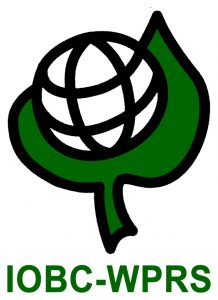 IOBC – Asia-Pacific Regional Section is seeking registrations of interest in a proposed international workshop on Conservation Biological Control (CBC) of Insect Pests, to be held at Lincoln University, New Zealand, from 12-15 November 2018, inclusive.
IOBC – Asia-Pacific Regional Section is seeking registrations of interest in a proposed international workshop on Conservation Biological Control (CBC) of Insect Pests, to be held at Lincoln University, New Zealand, from 12-15 November 2018, inclusive.
This workshop is a follow-up to that held simultaneously in Beijing and Hanoi in September 2017, which covered all aspects of insect biological control. The proposed workshop will concentrate on CBC only. It will target researchers, teachers and postgraduates, especially graduate students and early-career scientists researching or working in biological control in any geographic region.
There is likely to be some financial support from IOBC for this meeting, the details of which will follow later. People of any age or career stage can participate; however, the eligibility criteria for IOBC sponsorship is current IOBC membership and aged 35 years or under (this last criterion applies to research students also).
Of the three main types of biological control of insect pests, CBC is the newest and the fastest growing. There has been a global exponential increase in citation rates for publications in the area of CBC since 1990 (Prof. G.M. Gurr, pers. comm.) and the rate of increase is continuing. This indicates the importance of this ‘sustainable’ approach to pest management. One of the current challenges, however, is how to implement this research. A key advantage of the CBC approach is that individual growers can adopt it using simple protocols developed by scientists and extension agents. For example, the simple acronym SNAP has been widely adopted internationally by growers and scientists alike. SNAP represents the four types of resources that natural enemies need to maximize their ecological fitness, namely shelter, nectar, alternative food and pollen.
CBC is fast becoming part of an increasingly important approach to future agriculture called Sustainable Intensification (SI). This approach can be summarized as the ‘Three Rs’: Reduce, Replace, Redesign. Only the latter can bring about real change, while the other two make only small incremental contributions to the necessary improvements to sustainable food growing.
This will be the first time that IOBC-APRS has run such a workshop and will be limited to members from that region. A group of experts, mainly from the Asia-Pacific region, will lead the programme, including Prof. Steve Wratten (Lincoln University, NZ), Prof. Geoff Gurr (Charles Sturt University, Australia), Dr Kris Wyckhuys (Vietnam) and Prof. Jonathan Lundgren (USA).
Inexpensive accommodation and food will be available on the Lincoln University campus. Delegates will need to pay for this unless they are subsidized by IOBC Global. Other accommodation and food options are available locally in Lincoln and in Christchurch, 17km away. We are likely to have some funding support from IOBC Global for this workshop.
Our aim is to make this important event a true workshop that involves interactive, blended-learning methods and small-group work. For group projects, we will establish replicated experimental plots in the discipline of CBC at Lincoln University. Also, we have on campus a 24-year managed, replicated, grassland experiment that provides a unique opportunity for researching CBC in the context of invertebrate and plant community dynamics.
To register your initial interest in this workshop (please indicate if you would like to take part regardless of IOBC funding support), please email Janine Johnson ([email protected]) by 17 June 2018.
Relevant references include:
Gurr, G. and Wratten, S.D. (Eds) (2000). Biological Control: Measures of Success. Kluwer Academic Publishers, Dordrecht, 429 pp.
Gurr, G.M., Wratten, S.D., Landis, D.A. and Minsheng, Y. (2017). Habitat management to suppress pest populations: progress and prospects. Annual Review of Entomology 62: 91-109
Pretty, J., Benton, T.G., Butler Flora. C., et al. (In press). Redesign for the sustainable intensification of agricultural systems. Nature Sustainability
Tomasetto, F., Tylianakis, J.M., Reale, M., Wratten, S.D. and Goldson, S.L. (2016). Intensified agriculture favors evolved resistance to biological control. Proceedings of the National Academy of Science, DOI: 10.1073/pnas.1618416114
Wratten, S.D., Sandhu, H., Cullen, R. and Costanza, R. (Eds) (2013). Ecosystem Services in Agricultural and Urban Landscapes. Wiley-Blackwell, Chichester, UK.
